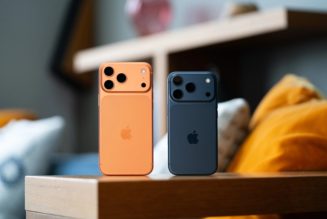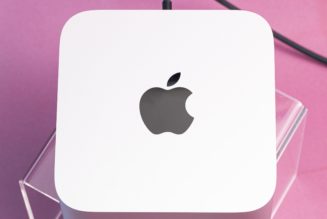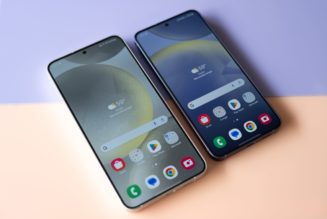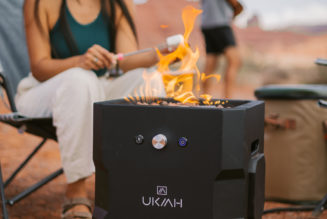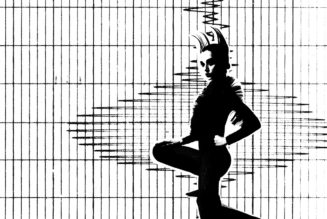When it comes to rolling out new models, the Apple Watch lineup typically receives fewer flashy upgrades compared to the iPhone. Instead, developers have dedicated themselves to quietly improving the device, making just a few tweaks each year since the inaugural watch rolled out in 2015.
As the Apple Watch has grown to dominate the smartwatch market – now making up over 35% of the global market share, according to researchers – the company has stepped up its efforts to continuously put out new models. Last year, Apple particularly amped up efforts with the release of three new watches.
Along with the Apple Watch Series 9, the expected addition to the main line, the Apple Watch Ultra 2 will also make its debut this week. In keeping with the approach it’s taken in years past, Apple made minimal design tweaks to the second-generation Ultra. At first glance, it even appears that nothing has been changed at all — most of the upgrades are material or internal. The casing for the new model is made from 95% recycled titanium as part of Apple’s aim to eventually become carbon-neutral. The Ultra 2’s de facto sport loop, has also undergone an eco-conscious revamp and is made out of 82% recycled yarn. For another strap option, Apple teamed up with Nike to make a colorful speckled band constructed of old ground-up watch bands.
Differences between the first-gen and second-gen Ultra become slightly more obvious when one actually turns the watch on. For starters, the Ultra 2 is capable of emitting 3,000 nits (the standard unit of measuring brightness), a jump from the previous 2,000-nit max, making it Apple’s brightest retina display on any device to date. While we were demoing the watch indoors, we could see how the increase would aid with viewing the display under the sun’s rays. 3,000 nits seems to be too bright for standard indoor use but the Ultra 2 is built to be an outdoor watch, after all.
Both the Ultra 2 and the Series 9 contain the new S9 chip, based on the A15 Bionic chip included in the iPhone 13. Lauded to be 30% faster, the new processor lends itself to a few functional advancements that do give new watches a leg-up on last year’s models. For starters, storage has been doubled, going from 32 GB to 64 GB and battery life has been extended from 60 hours to 72 hours. Wearers can now make use of Siri even when the watch is offline. This feature is something that’s particularly helpful in the Ultra 2, when adventurers may lack service off-the-grid and want to issue commands while hiking, running, skiing or mountain climbing.
In the same vein of easy usage, Apple has rolled out a new feature called Double Tap. True to its name, users can tap their thumb and index finger together to trigger certain commands. For instance, upon opening the Calendar app, a Double Tap can be used to scroll through a list of upcoming events. Rather than manually program the watch to respond to certain commands – as is required of the iPhone 15’s new Action Button – Double Tap seems to be a bit more intuitive. Trying out the feature for ourselves, Double Tap was largely responsive but occasionally missed once in a while, where the screen stayed static despite our tapping. I was assured by Apple employees, however, that the Ultra 2 just needs a chance to calibrate to the feeling of my taps. By using Siri to open certain apps and Double Tap to navigate them, one could get around their watch without ever having to actually touch the screen.
The second main feature leading the charge on the new watches is the device locator tool, Precision Finding. Long gone are the days of merely ringing an iPhone so that you follow the sound to its secret hiding spot. If one is already within a roughly 50-foot range, Precision Finding takes things a step further by notifying a user of exactly how many feet away they are from their lost device as they move around a room. When they’re six feet or less away, the device will play a unique beep to indicate its proximity.
Given that the original Apple Watch Ultra was years in the making, and only launched a year ago, the lack of changes to its follow-up’s physical appearance wasn’t very surprising. And since the Series 9 and Ultra 2 are both powered by the S9, Double Tap and Precision Finding, along with other software improvements, are uniform across the two devices. That means that the only thing really setting the new models apart is the Ultra’s reputation as a ruggedized model, a comparison that will have many prospective buyers harking back to weighing up the first-gen Ultra and Series 8 just last year.
While offering more durability and longer battery life, the Ultra 2 is much more expensive at $799 USD over the $399 USD Series 9, meaning that it’s likely only “worth it” for those who plan to make use of its outdoors adventure-minded capabilities. For those who already own the first-gen Ultra, the Ultra 2 does offer some fun new features, but doesn’t offer enough innovation to warrant an upgrade right now.





